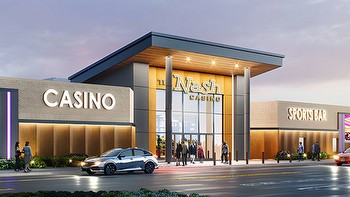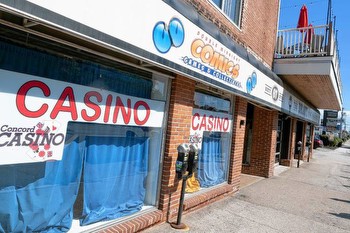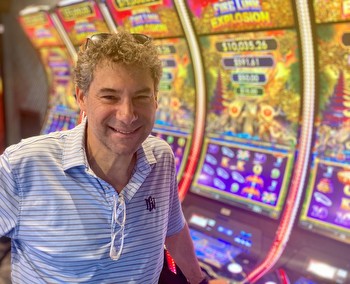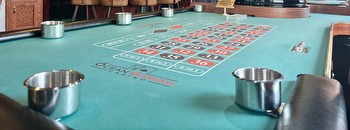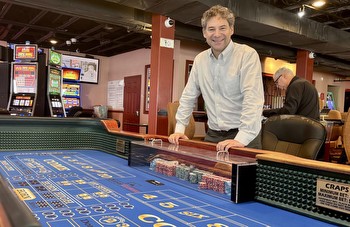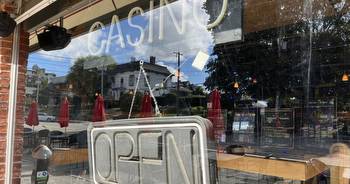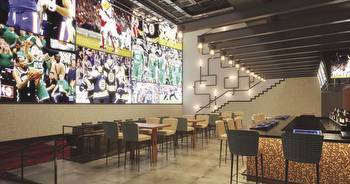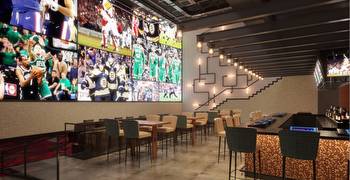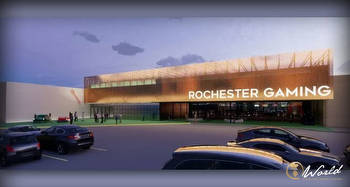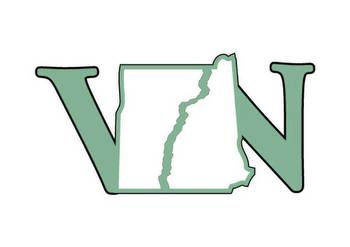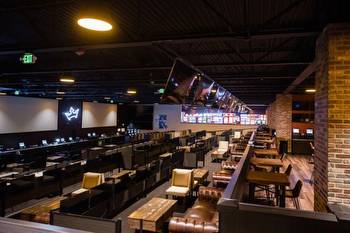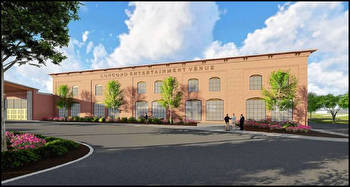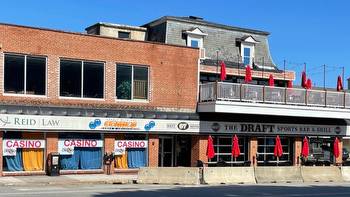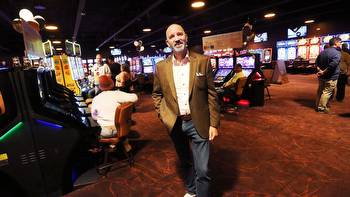Investment shows continued growth in NH casino gaming
Greg Carlin’s investment in his Beach Club Casino in Hampton is emblematic of how popular charitable gambling is in New Hampshire and how much it’s likely to grow in the future.
“New Hampshire’s charitable gaming framework is unique in putting community first while providing an enjoyable gaming and dining experience for our guests,” said Carlin, CEO of Granite State Gaming & Hospitality (GSGH). “With our recent and ongoing improvements to the operation, one of our goals is to increase charitable contributions for local nonprofits and serve more community organizations.”
His and other gaming facilities in the state casinos are approved for gambling that benefits charities and public education, a licensing arrangement that is solely unique to New Hampshire.
But in their look, in their vibe, in how the gambling is done by players, the 12 casinos currently in operation throughout the state — with more in the proposal stage — are in essence the gambling that the state resisted for so many years. The difference is this: With commercial gambling, the revenue would have gone into the general fund; with charity gaming, the main beneficiaries are nonprofits.
As retiring state Sen. Lou D’Allesandro, D-Manchester, who long advocated for commercial casinos in the state, observed: “I’m happy that charities are getting what they’re getting,” adding this about commercial casinos: “It’s a missed opportunity, but the people spoke.”
The charity gaming facilities operate under the state’s charitable gaming laws, with state Lottery Commission oversight.
Carlin’s Beach Club Casino recently opened the doors to a refreshed look, a new second floor of gaming, and a new name — it was formerly known as Ocean Gaming Casino.
The Beach Club Casino venue at 81 Ocean Boulevard, just across the street from the expanse of Hampton Beach, is expected to contribute $2 million for up to 73 nonprofits each year, about double what the business contributed to charities in 2023.
“Granite State Gaming & Hospitality has made it clear they are invested in the future of Hampton Beach, our community and our nonprofits,” said John Nyhan, president of Hampton Area Chamber of Commerce. “The many enhancements to and expansion of the gaming space and the rebranding to Beach Club Casino mark the start of an exciting new chapter for this Hampton destination.”
According to Carlin, the charity casinos tend to be smaller (as compared to the Wynn casino in Everett, Mass., say), giving them a neighborhood bar kind of feel. As such, they’re impact is felt more locally.
“Here, it has a real impact,” said Carlin, noting that the rebrand launch party several weeks ago included some of the local charities it benefits as guests. “Just hearing the stories of folks from the nonprofits we support was amazing. It’s a cool thing the way it’s done here; no other state does it like that.”
Games of chance
The Lottery Commission oversees all the various gaming and gambling opportunities in the state. This first-ever charity gaming model was enacted by the Legislature in 2006. In addition to the charitable gaming and various lottery and lotto games — New Hampshire is credited with having the first state-run lottery when it was established in 1964 — live horse racing, simulcast horse and greyhound racing, Bingo, Lucky 7, and, most recently sports betting via DraftKings are all regulated by the Lottery.
The charitable gaming casinos feature table games (such as roulette) and card games (poker and blackjack). A game-changer was the 2021 legalization of historic horse racing (HRR) machines at charitable gaming facilities, which have the look and feel of slot machines.
Slot machines, like those you might play in Las Vegas, contain random number generators that produce thousands of numbers per second. Whether you win or lose is determined by the random number generated in the exact instant you activate each play.
HHR uses combinations of previously conducted horse races, randomly chosen from an extensive electronic database of potential races. Once the wager is placed, the machine displays a shortened version of the race along a game display that might include spinning reels with symbols like a slot.
“Based on the outcome of that race is what determines the symbols and the outcome of the HHR,” said Carlin.
Carlin has 130 HHR machines in the Beach Club Casino. The largest operation state, The Brook in Seabrook, has 505 HHR machines.
A before-and-after snapshot of Lottery Commission revenue shows the value of the addition of HHR:
This graphic, provided by the Lottery Commission, shows total game of chance (GOC) revenue and HHR revenue in the calendar years starting in 2020. HHR revenue shows up in 2022, the first year it was allowed and how that revenue jumped by almost 450 percent from 2022 to 2023.
For how the money is divided up, there are different percentages for the GOC and HHR.
For games of chance during the period that the gaming is done on behalf of a nonprofit, 35 percent of total revenue goes to the charity. As of June 25, according to the Lottery, game operators are no longer allowed to charge charities rent for the use of a facility. The state gets 10 percent of total revenue, but on days with losses, the tax is zero, rather than a negative. The state tax also differs by game type as follows: For poker tournaments 3 percent of funds are collected from players, all other games are 10 percent of total revenue. The game operator gets 55 percent.
For historic horse racing, the charities earn 8.75 percent of total revenue, which the Lottery calls total commission. The state gets 16.25 percent of total commission, and the game operator gets 75 percent of commission.
The addition of sports betting in New Hampshire has also proved to be popular, especially when the Boston Celtics basketball team was on its run for its 18th championship.
The Lottery reports that during the NBA Finals there were 429,116 bets on the Celtics with total wagers amounting to $11,271,604.
Through DraftKings, the Lottery said New Hampshire players bet on game outcomes and point spreads, as well as betting on specific players, such as Jaylen Brown for most valuable player and Luka Doncic to score the most points and hit the most threes in the series. Players also bet on individual player stats, such as points, rebounds and assists per game.
Current licensed game operators in the state include:
Aces & Eights Casino in Hampton
Chasers Poker Room in Salem
Filotimo Casino and Restaurant in Dover and Manchester
Gate City Casino in Nashua
Lakes Region Casino in Laconia
Lebanon Poker Room and Casino in Lebanon
Ocean Gaming (now Beach Club) Casino in Hampton
The Brook in Seabrook
The Lucky Moose Casino & Tavern in Nashua
The River Casino & Sports Bar in Nashua
Wonder Casino in Keene
Until recently, there were 14. Northwoods Casino in Berlin closed voluntarily as it plans to reopen once it finds a new location, according to the Lottery. Concord Casino in Concord closed after the Lottery Commission and Attorney General accused its owner, former state Sen. Andy Sanborn, of improperly obtaining COVID relief funds. The license was suspended, and Sanborn is selling the casino.
An entertainment destination
More charity gaming facilities are in the offing. Proposals are on the table in Keene, Nashua, Concord and Rochester.
Carlin’s Granite State Gaming & Hospitality is developing a 32,000-square-foot charitable gaming facility in the Lilac Mall, located at 7 Milton Road in Rochester. The casino, once it opens sometime in 2025, is slated to have 220 HHR machines and 28 table games, as well as a Bingo hall.
He sees a possible trend in using casinos to revitalize shopping malls that are losing big box department stores.
“We’re going to have all kinds of space to put in new tenants and make it really an entertainment destination,” said Carlin. “It’s happening in malls around the country. They’re looking for other things besides traditional department stores.”
The Rochester venue expects to contribute an estimated $3 million each year to a projected 104 nonprofits in Rochester and surrounding communities.
A casino is also proposed for another mall: the Pheasant Lane Mall in Nashua.
ECL Entertainment, the owner of the Lucky Moose and The River in Nashua, intends to build out 130,000 square feet of the 180,000-square-foot former Sears building. The venue will feature table gaming, HHR machines and a two-story sports entertainment complex with a full bar and an approximately 20-foot by 50-foot LED screen. Non-gambling games like pool, shuffleboard, foosball and golf simulators will be offered, and the venue is slated to include a cafe, a noodle bar and a steakhouse.
For D’Allesandro, who is retiring from the senate after 26 years, this growth represents a missed opportunity.
“For 20 years, I worked hard to try to get something together that would benefit all of the people in the state of New Hampshire, including the charities, but I failed,” he said.
Each legislative session, D’Allesandro brought forth a bill to legalize casino gambling in the state. He’d get close on occasion — like getting two of three 7s on a slot machine — but never cashed in on what he felt could have been an economic windfall for state coffers. His 2014 proposal for legalizing just two commercial casinos sharing a total of 5,000 video slot machines and 240 table games would have generated more than $105 million or more a year in state revenue.
He describes the current state revenue from the wide variety of gaming “a pittance” to what it could have been with commercially licensed casinos. “It’s one of my great disappointments,” he said.








